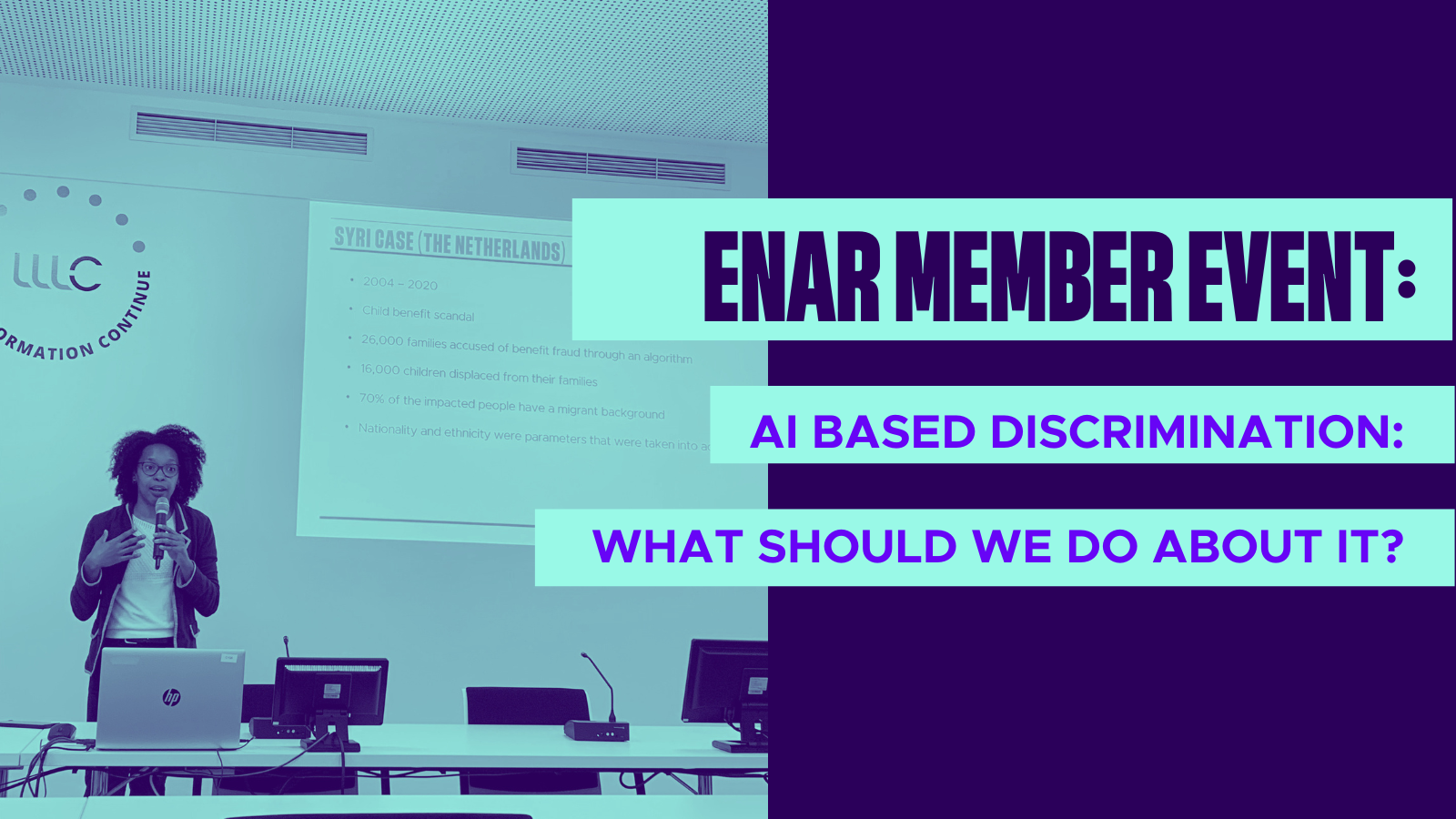
AI BASED DISCRIMINATION: WHAT SHOULD WE DO ABOUT IT?
On May 4th, Oyidiya Oji, ENAR Policy and Advocacy Advisor for Digital Rights, was invited by ENAR member Letz Rise Up to deliver a presentation in Luxembourg. For the ‘AI Based Dicrimination: What Should We Do About It?’ event, Oyidiya discussed the likelihood of AI becoming an overpowering force that takes over the world, its potentially adverse impacts on the public and how we can prevent advances in AI from exacerbating existing systemic discrimination and social injustice.
Background
Artificial Intelligence (AI) techniques based on big data and algorithmic processing are increasingly used to guide decisions in important societal spheres, including hiring decisions, university admissions, loan granting, and crime prediction.
However, there are growing concerns regarding the epistemic and normative quality of AI evaluations and predictions. In particular, there is strong evidence that algorithms may sometimes amplify rather than eliminate existing bias and discrimination, and thereby have negative effects on social cohesion and on democratic institutions.
Main takeaways
- With AI becoming a prevalent area of concern in the anti-racist movement, ENAR members are becoming more interested in the topic;
- A committee vote was held on the AI Act on May 11th 2023;
- A plenary vote will be held on the AI Act on June 14th 2023;
- AI impacts People of Color (POC) and religious minorities both within the private and public sector;
- There are a number of problems within the tech and regulatory landscapes which is why it’s important to involve communities and organisations.
What is the AI Act?
The AI Act is a proposed European law on artificial intelligence (AI) – the first law on AI by a major regulator anywhere. The law assigns applications of AI to three risk categories. First, applications and systems that create an unacceptable risk, such as government-run social scoring of the type used in China, are banned. Second, high-risk applications, such as a CV-scanning tool that ranks job applicants, are subject to specific legal requirements. Lastly, applications not explicitly banned or listed as high-risk are largely left unregulated.



